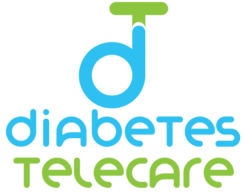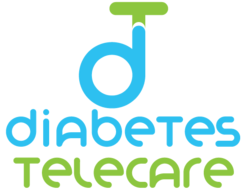
-
Posted By Diabetes TeleCare
-
-
Comments 0
Eid ul Azha is all about celebration, family, and, of course, mutton dishes. From BBQ to spicy curries, meat takes center stage on the table.
But what if you have diabetes? Can you still enjoy the feast? That’s a real concern for many. Mutton for sugar patients raises questions every Eid. Is it safe? How much is too much?
The good news is—you don’t have to skip it altogether. With the right choices, you can enjoy Eid meals without harming your health.
This blog will guide you. We’ll discuss the benefits, risks, and safe ways to consume mutton with diabetes. Let’s make this Eid both joyful and healthy!
Is Mutton Good or Bad for Sugar Patients?
Mutton tastes good and is healthy. Your body gets protein, iron, and healthy fats. These help build muscles and keep you strong. But for sugar patients, things are a bit tricky. Mutton has saturated fats.
These elevate cholesterol if overeaten. Fatty foods may also impair insulin use. That’s bad for glucose regulation.
However, mutton has no carbohydrates. Thus, it doesn’t elevate blood sugar like bread or sweets. That’s a plus. The real issue is how it’s cooked and how much you eat.
Deep-fried or oily mutton dishes can be harmful. Significant portions are also risky. But small amounts of grilled or boiled mutton can be okay for many people with diabetes. So, mutton for sugar patients is not bad.
Benefits of Mutton for Diabetic Patients
Mutton can be good for your health—if you eat it in small, healthy portions.
Here’s why:
- Rich in protein: It repairs muscles and fills you up. This may help you avoid sugary snacks.
- Packed with nutrients: Mutton is rich in iron, zinc, and vitamin B12. These boost immunity and activity.
- No direct sugar spike: Mutton has zero carbs. That means it won’t raise your blood sugar right away like sweets or rice.
However, remember that mutton is only beneficial for sugar patients if it’s lean and not cooked in excessive oil. Additionally, Healthy sides like salads or whole grains can enhance your meal. So yes, mutton can have some benefits. You just need to be smart about how and when you eat it.
Risks of Eating Mutton on Eid for Diabetics
Mutton may be tasty, but it’s not always safe, especially during Eid when meals are heavy and rich.
Here’s what sugar patients need to watch out for:
- High in saturated fat: Excess fat raises cholesterol. This could cause heart problems, which diabetes already increases.
- Hard to digest: Mutton dishes, fried or spicy might be challenging to digest. This can make you feel tired or bloated.
- Blood sugar issues: While mutton has no sugar, pairing it with naan, rice, or sweet drinks can still spike your glucose.
- Weight gain: Eating large portions often leads to weight gain. That makes diabetes more challenging to manage.
How to Eat Mutton Safely on Eid ul Azha (For Diabetics)
You don’t have to skip mutton this Eid. You just need to make better choices. Here are some tips to enjoy mutton for sugar patients in a safe way:
- Watch your portion: Eat a small piece—about the size of your palm. That’s enough protein without going overboard.
- Pick lean cuts: Choose meat with less fat. Avoid ribs and organ meats, such as liver or kidney.
- Cook it light: Grilled, boiled, or air-fried mutton is better than deep-fried or creamy curries.
- Skip oily gravies: Consuming too much oil adds unnecessary calories and fat. Use less oil and fewer spices when cooking.
- Pair it smart: Eat mutton with vegetables or salad.
- Don’t eat late at night: Give your body time to digest. Late meals can raise blood sugar while you sleep.
Water and exercise are also essential. A quick walk after meals can balance sugar levels. So yes, you can still enjoy mutton on Eid—just be mindful and plan your plate wisely.
Best Mutton Cuts for Diabetics
Not all parts of mutton are the same. Some are healthier than others, especially for sugar patients. Here’s what to look for:
- Go for lean cuts: The best options are leg, loin, and shoulder. These have less fat and more protein.
- Trim the fat: Always remove the white fat layer before cooking or eating.
- Avoid organ meat: Liver, kidney, and brain are high in cholesterol and not safe for most diabetics.
- No bones with fat pieces: These are often used in curries and have hidden fats that raise cholesterol.
When buying mutton for Eid, ask the butcher for lean meat with less visible fat. Remember, the right mutton cuts for sugar patients can help you enjoy Eid without harming your blood sugar.
Eid Meal Plan: Diabetic-Friendly Mutton Dish Ideas
You don’t have to give up flavor to eat healthy. With a few smart adjustments, you can savor delicious mutton dishes this Eid without compromising your sugar levels.
Here are some diabetic-friendly ideas:
- Grilled Mutton Skewers: Marinate lean pieces in yogurt, lemon juice, and light spices. Then grill. No oil needed.
- Boiled Mutton Stew: Use lots of vegetables, less salt, and no butter or cream.
- Air-Fried Mutton Chops: A tasty, crispy option with very little oil.
- Mutton Salad Bowl: Mix small, cooked pieces of mutton with cucumbers, lettuce, tomatoes, and drizzle with olive oil.
- Whole Grain Roti with Mutton Curry: Prepare a light curry using less oil and serve it with a small whole-wheat roti.
Additionally, opt for water instead of sugary beverages. And skip desserts or choose sugar-free ones. So yes, mutton for sugar patients can still be part of a joyful Eid meal. Just cook it lightly and eat it right.
Conclusion
Can Sugar Patients Enjoy Mutton on Eid al-Azha? Yes, they can—if they’re careful. Mutton for sugar patients is not off-limits. However, it must be consumed in small amounts and prepared healthily.
Choose lean cuts. Avoid oily dishes. Balance your plate with veggies or whole grains. And don’t forget to monitor your sugar levels. Eid is for joy and gratitude. Smart decisions let you feast without hurting your health.
Celebrate with care—and make this Eid both joyful and sugar-safe!
Consider booking an appointment with our specialist for personalized care and deeper insights into managing diabetes. Your health deserves the best attention.
For Contact: +92 323 3004420



